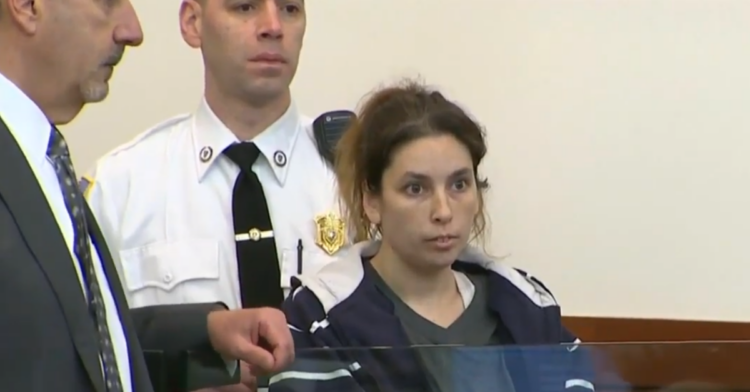Growing up, many of us had a pretty simplistic idea of how the criminal justice system worked. When somebody does something terrible, the police catch them and then they go to jail.
That perception gave us a lot of comfort, as we get older, it becomes easier to learn that both the system and the laws that govern it are more complicated than that.
Sometimes, we’ll see innocent people end up convicted of serious crimes.

Other times, we find ourselves thinking that someone who was guilty of a brutal crime got off way too easily.
It’s necessary for certain legal standards to be met in a case so that the first of these injustices happens as little as possible, but it still inspires a lot of outrage when a horrific situation doesn’t meet that standard.
By August of 2014, 35-year-old Erika Murray’s home was undeniably in an uninhabitable state.

As People reported , she and her boyfriend, 42-year-old Raymond Rivera, had expressed concerns about not being able to afford caring for more children.
Other than that, however, it remains a mystery how the family’s living conditions deteriorated so much.
Yet, many of those children were in the house without the knowledge of Murray’s friends and family.

That is, until her 10-year-old son let his friend know that two babies in the house wouldn’t stop crying.
That friend told his mother, who called police soon after visiting Murray’s home and seeing the state of it.
When police searched the house on August 28 of that year, they recovered three dead infants who had been left in two closets.

One still had the umbilical cord attached, while the other two were wearing diapers and baby clothes.
Four other children, including a six-month-old and a three-year-old, were also removed from the house.
Murray was charged with two counts of murder, child endangerment, and two counts of assault and battery on a child.

Rivera was also charged with assault and battery on a child and reckless endangerment, but he is still awaiting trial.
Murray was not charged in connection with the third baby’s death.
The reason for this and for how the case unfolded had a lot to do with the mysteries behind how and when these infants died.

As CBS Boston reported , Dr. Amos Grunebaum testified that these babies were birthed at home, which increased the risk of stillbirths.
This ended up being a particularly important detail in the case.

As it was unclear whether one of the babies had been born dead or alive, one of Murray’s murder charges was dismissed.
This past Thursday, Judge Janet Kenton-Walker also acquitted Murray of the remaining murder charge and the child endangerment charges.

As WPRI reported , this was because expert testimony had convinced her that a combination of economic stresses and a personality disorder impaired Murray’s ability to process information and left her inured to the situation that was unfolding around her.
Judge Kenton-Walker, however, did find Murray guilt of two counts of assault and battery on a child.

According to the 191st General Court of Massachusetts , this crime is punishable by up to 15 years of incarceration in state prison or two-and-a-half years in a house of correction.
Murray’s sentencing hearing is scheduled for July 11.

Until then, it will be unclear how many years of imprisonment Judge Kenton-Walker will see fit to pass down, as well as how the multiple counts of assault and battery will be resolved.
Sometimes, the circumstances surrounding a crime are much more complicated than what the law allows for.

It can be controversial when a judge uses their better judgment in order to deconstruct the intricacies of a complicated case, but this situation certainly warranted that kind of extra attention.
Do you think that the case was handled properly?
h/t: People
















































